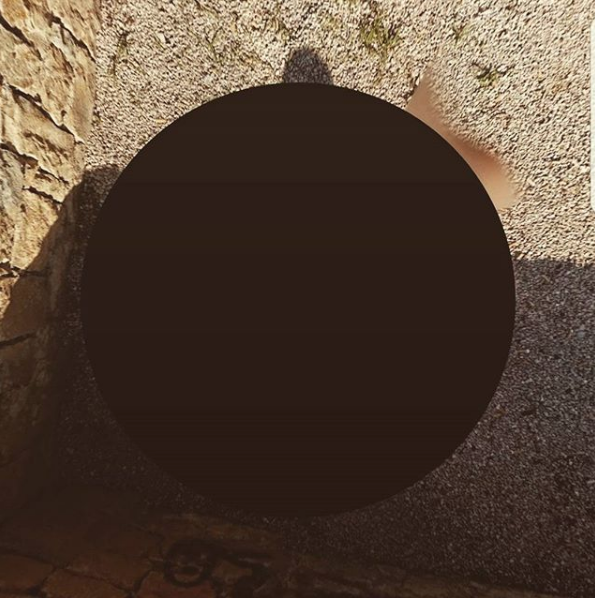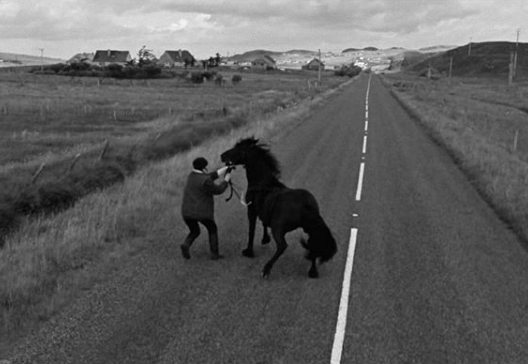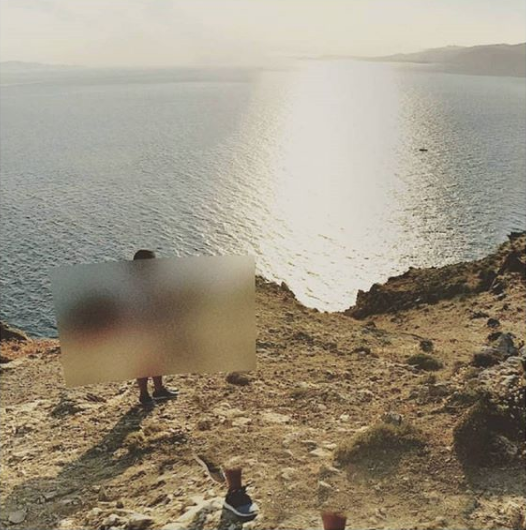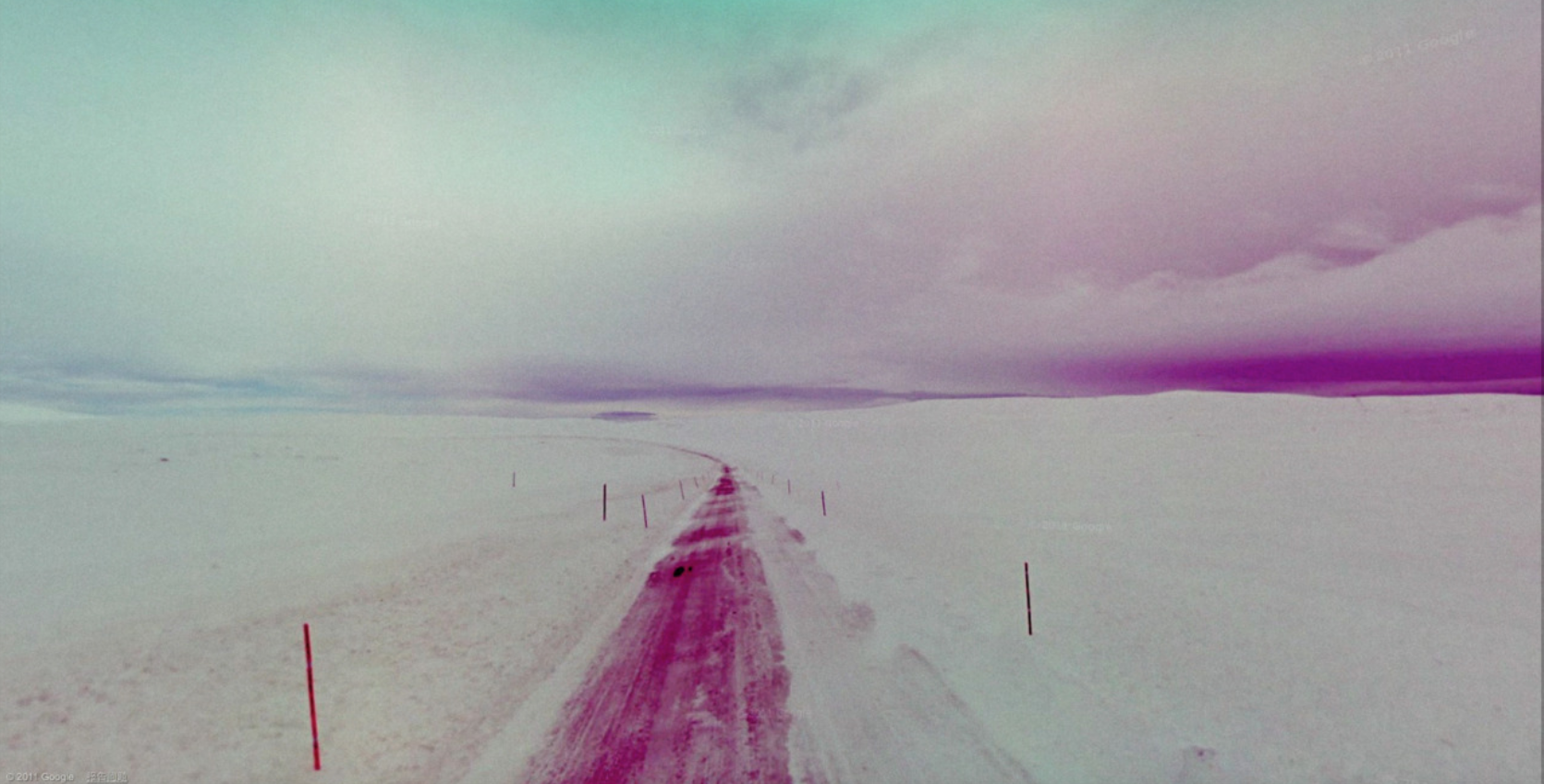Black, Gold
MASTIFF
Owen VINCE


1.
One of ten thousand thousand eyes—not eyes, but lenses; an approximation of a sphere, its gel, its colour—moves automatically, in scheduled alignments; as far as the camera can explore, before the horizon erupts into nothingness. Google Street view is an eclipse; a rendering of specific territories into strange familiarities. It is the confusion of other territories into the pale of non-representation. These mechanics disfigure; faces; certain privacies. Entire state factories, facilities, are masked with sheets of riotous smearing. others—you can linger, and look for many hours—reveal the moment extended, made durable beyond itself.
2.
My friend messages me: ‘a lifetime ambition’. He found himself street-viewed. He is on a simple welsh street—standing next to a car. His face is blurred, as it should be. We joke that it was always this way. A man captures a beach; a woman behind him is changing; a thick bar of confusion runs across her body, is laid across it.
3.
Pulled from water too soon—still wet, its neck is barred and it is rearing. the car must have slowed, to a halt; and idling roll. ‘you make your own choices’. The horse runs away from his hands; I think of Sergei Polunin, not dancing but standing—deep onto his heels, limber + strongly about to fall forward, outward. the black horse rears. It is caught in ice; trapped. It will continually rear. a second later there are two horses; one fluid, and moving; the other suspended. out of time. Sontag runs her tired hands across her eyes. Sergei falls forward, intentional collapse—dry dust lifts from the floor.
4.
The artist Jon Rafman has concluded that Google street view might be ‘the ultimate conclusion of the medium of photography’. He searches through the sublime, ugly, strange, & other. ‘It doesn’t make any moral judgements. It doesn’t step into history.’ Its passiveness—a blinking camera, oriented in every conceivable direction—amplifies the stage on which human performance is given space.
Google is not a single, undifferentiated record. In the years since 2009, when the project began, Google have upgraded its cameras and the information—the metadata—these cameras collect. The result has been beguiling, in so far as each new generation of cameras supplants an older one; the first images are more granular, the difference between kodak Super 8 and high-res digital photography. The same photograph of the same stretch of road in 2009 is different in 2013. it is different again in 2017.


6.
A blood orange, its diameter perfectly spherical. Black. A black hole. The representation of a black hole within a region of space. A science program’s representation of a black hole. A smooth, undifferentiated circle. a pit struck, irreversibly, into—overlaid upon—sand, hot stone, metal. The region where the photographer’s trunk of body stands. inert. The circle eclipses the body—tendrils of feet, blurred corpse, too up-close hands, territories of skin—and falters it. The body becomes evacuation. It is no longer present but also—made more present, & lays dormant there.
7.
Minotaur walls—caked on chalk. The sea is of limitless pools, black petunia depths. Minotaur wails. The walker’s body decamped into sections, iterations of a past, glimpsed & through the idle and continually stalled capturing of the camera’s lens. A trail of parts; shoes, ankles, bones, clothes—headless. The sea is impossible—impossibly cold. Holiday or tragedy. Holidays can end in tragedy, or begin with it. Perhaps a vase of ashes is dumped over the water. Or a cigarette is put out, and the wind forces it back onto the waiting.
8.
The first time I came to venice, I continued thinking about brodsky’s ‘watermark’—a book entirely about his coming to venice. ‘the eye’, he says, ‘identifies itself not with the body it belongs to but with the object of its attention’. i always loved brodsky’s ability to lay claim to sentences like that—to say something so intensely made-of-water, so insubstantial, yet cast entirely of metal. who knows cares wants to know what the eye identifies itself with. my sight is imperfect; the eye is always located within my body. seeing is also swallowing the seen. sight— maybe he says this—is empathy. What does this mean for when the lights are turned off?
9.
A raw—dog body is seen. Black, gold, mastiff. Leg lifted. Poised.
You say poised,
because it means something is about to happen.
Afterwards.

10.
‘Photography produces a possibility of another,
uncontrollable situation.’
—David CLAERBOUT
Google—its amass of images, countless, but you could count them—decipher or let light into the possibility of another, uncontrollable situation. what would force a google car to reverse and re-do its photo run? an accident? a fire? anything deemed inappropriate is just—liquidated out. smeared or wiped off. faces are blurred. an advertising hoarding—it shows a man and a woman kissing—is blurred, because, in 2 dimensions, it cannot distinguish a real from a photographed face.
11.
Cow body drags itself across the land; the road. In fear or tiredness or immensities of pain, the car-camera complex is outside of ethics but—here Rafman is wrong—is always within them; an injury not intervened in. The animal suffers in one moment, and suffers in repetition. Morality is running through your hands. Pooling onto the floor. Rising up your calves. Seeing is not ever outside of ethics. Just because you drive on, it doesn’t mean you weren’t a witness.
12.
Marc Auge is in airports. Marc Auge is in parties. He designates two complementary realities; spaces formed in relation ‘to certain ends’, and ‘the relations that individuals’ have there.Non-places emerge where the place becomes entirely contractual. The airport; the shopping mall. Super modernity proliferates the non-place.The Google car drags contractility with it, without us—willingly—participating. Places that are not non-places accelerate into places that are contractual. The contract of the nearly thoroughly digital net (a blanket punctuated where we access it, 4G or wifi) which covers the world is dragged into places which, quite suddenly, participate in the same undifferentiated digital field. A back road in Guyana becomes as perceivable as Times Square.
13.
Rafman. Again.
‘Google’s facial recognition software sometimes fails,
unintentionally revealing an individual’s identity.’
14.
The sea is fearless water. It is water accumulated into weight, and weight = the power to reverse time. Weight is the power to reverse or destabilise time. The look of edges which smear—provoke—into an absence of resolution. Body stands neither ankle nor foot nor head into blue. Graciously. sometimes I wonder if the best photographs of us we will never see. How many hours days months years would it take me to travel every strip of road covered by Google. Perhaps it would be an infinite task—and all the while I would become lighter.

15.
A red snow river. Bending it bends into grey, blue. Entire cities—built environments—have fallen away. I become aware not of the sound of snow crunching under foot but more aware, acutely aware, of the sound of my fingers pressing into (onto?) plastic keys. They don’t give way. Charlie fox, speaking of monsters: ‘Right now, of course, there are monstrous entertainments everywhere. ‘This is acute. Gold deserts picked apart with shredded fruit; cut open. The woman who dug through the copper cable of Armenia’s internet—she was digging for vegetables—and sent half the country into darkness. Maybe a candle remained on, and people read Good Books together. Distraction is everywhere; our constant state is distraction, sustained. I can’t remember the last time I wasn’t a distributed entity, and half of my life was unknown to me.
16.
A van bursts into flames. A van bursts into flames and I will never know whether it is put out or not. A car was torched behind my new cross house. A car was torched and the fumes stole into the house. I left and took a train, my clothes stinking of toxin. How come nobody burns cars when it’s raining. Ed Atkins. He is speaking of a too-unreal-real face. ‘We are mediated and remediated as bodies and identities, by all manner of apparatuses, both literal and figural.’
17.
How come the best photographs of us are taken not when it’s raining—but when our backs are turned.
Owen VINCE is a writer and media artist living in London. His visual work
encompasses the creation of 3D junk-space, borderlands, and non-places. His
written work includes sound performance and text, including the shortbook The
Adrift of Samus Aran, published by Fathom Books (US). He tweets @abrightfar.
